In this article, you will learn what are different types of saws? and How to use it? explained with Pictures. Download the PDF file of this article at the end of it.
What is Saw?
A saw is a tool used for woodworking projects and has been a necessary tool for many years. It is also used in metal works, but its primary use is for cutting wood.
The saw has been using for thousands of years, to reach the desired needs such as shape, design, and functions. Over the last few hundred years, saws have almost changed so fast that it has become difficult for anyone to know all types of saws.
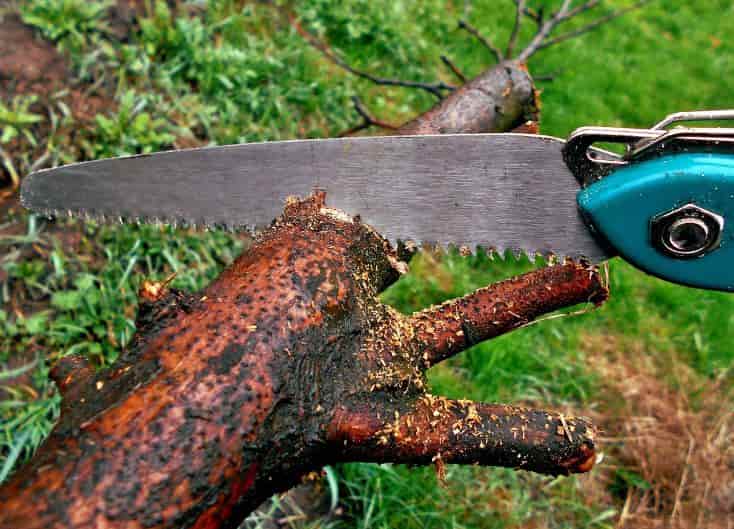
A carpentry workshop is a great place to have at the home. But, if you do not have the best equipment, your home workshop will not be useful. The saw is a very important tool you could found in your carpentry workshop.
The saw you choose should depend on the project that you are working for and what you expect to achieve. So without wasting the time, let’s deal with some of the best types of saws that available to see today.
Types of Saws
Following are the different types of saw, which are described blow:
- Rip Saw
- Hand saw
- Cross-cut saw
- Tenon or Backsaw
- Dovetail saw
- Bow saw
- Fret saw
- Compass saw
- Pad or key-hole saw
- Hack saw
- Pruning saw
- Veneer Saw
- Camping saw
- Folding saw
- Wallboard saw
- Bandsaw
- Table saw
- Chain saw
- Circular saw
- Tile saw
- Panel saw
- Jigsaw
- Miter saw
- Oscillating saw
- Rotary saw
- Reciprocating saw
- Radial arm saw
- Pole saw
- Track saw
#1 Rip Saw
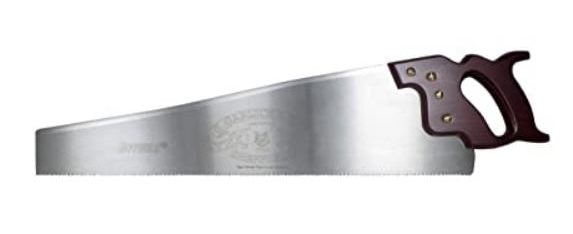
Many people usually get confused between rip-cut saws and crosscut saws. even though, the appearance of these saws is almost similar to each other. The difference is in their uses. Rip-cut saw is used for cutting along the grain in a thick wood.
Rip-saw saws will have taper end at some virtual point. This enables you to move easily within the wood in the form of a cut. It has very sharp teeth but it is almost less. By using the rip cut saw you will achieve fine cuts.
#2 Hand Saw
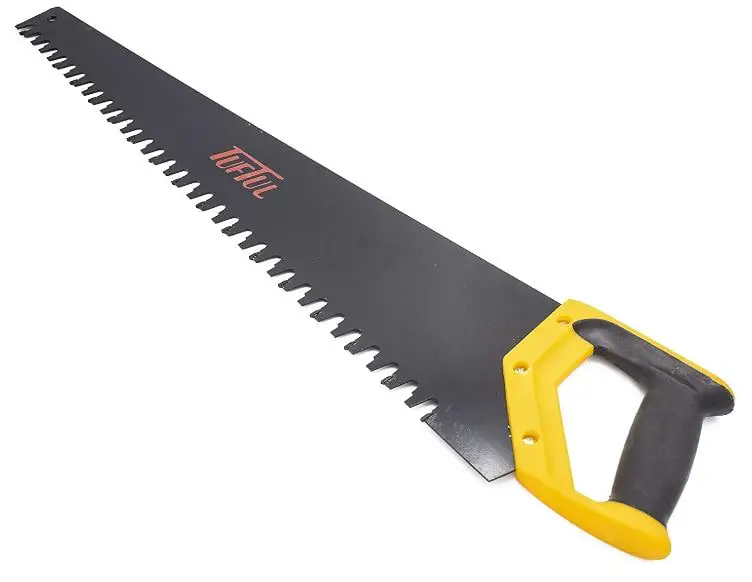
A hand saw is using from the ancient world and it is a basic types of saws. It is used to make various cuts in the home for repairing or framing purposes.
Although the saw is not made for fine cutting, you can use it to cut old timbers and small pieces of wood needed for repair. It is useful in cutting bones.
#3 Cross-cut Saw

A crosscut saw is consists of a thick blade, with large and beveled teeth, that is useful for cutting across the grain in thick woods. The traditional 2-man crosscut saw has a handle at both ends and it is helpful to do perpendicular cuts of the wood with excellent accuracy.
Crosscut saws are available in a variety of sizes from small to large, depending on the type of work you are doing. It is also used for clamping and tours.
#4 Tenon or Back Saw
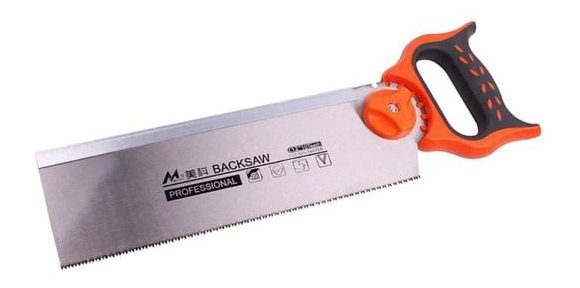
Tenon saws are usually used to create tenons used in mortise and tenon joints. These saws mostly used for cutting hard and softwoods. A tenon saw must have teeth between 10 and 14 per inch.
This allows you to have more control over the depth and direction of the cut that you are making. It is used for cross-cutting when you need a finer and more accurate finish.
#5 Dovetail Saw

A dovetail saw is almost to tenon saw but there is the only difference is that the dovetail saw is used as much for other cutting besides its larger cousin the tenon saw.
These saws will usually come with 15 to 20 teeth per inch. It is used where the greatest accuracy is needed and fine shallow cuts are to be made.
#6 Bow Saw
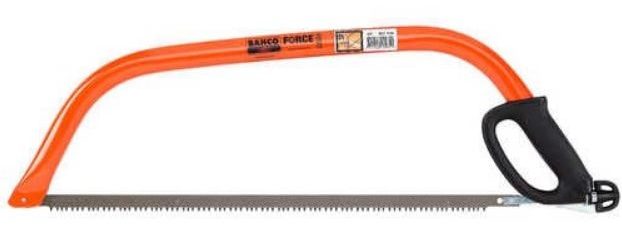
It is a type of crosscut saw, that is used for cutting quick curves. The shape of this saw is similar to a bow. Though, the bow saws have a thicker blade with rugged teeth.
This is helpful for cutting through thick plywood and regular wooden boards. Moreover, used for tree trimming, cutting logs, and other rough cuts.
#7 Fret Saw
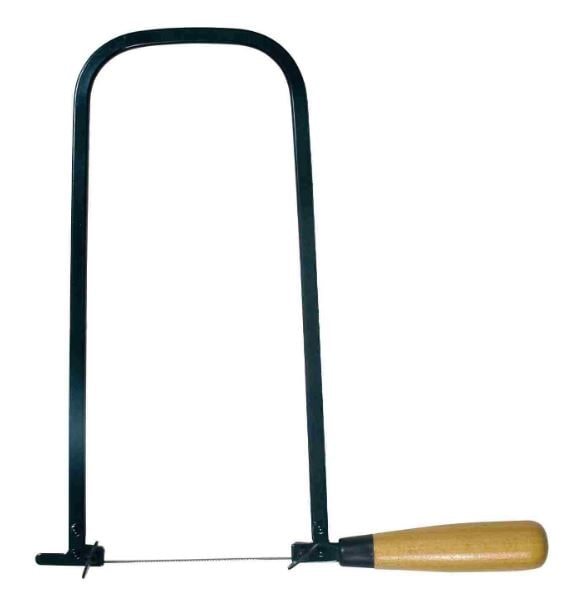
The fret saw is consists of 32 teeth per inch and it is perfect for cutting small radius curves for obtaining great accuracy. In addition, its frame is about 10 or 20 inches long with a 5-inch blade.
If you need to cut the small curves in a confined space, then this saw is best for you. It can also perform trim work and scrolling with ease.
#8 Scroll Saw
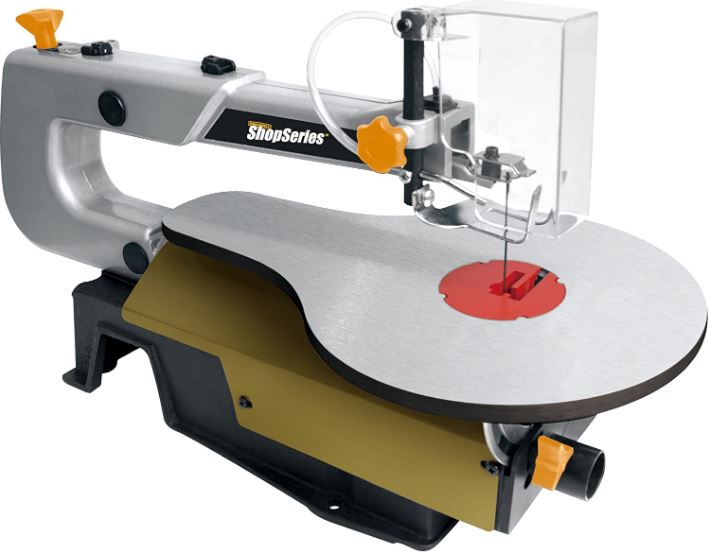
These types of saws are similar to coping saw, which can operate with a continuous reciprocating blade. These saws are made for difficult scrollwork, spiral lines, or patterns.
Their table is very useful while you are in cutting, you can place materials on the table to achieve precise rotation and expansion. It is used for making curves with edges.
#9 Pad or Key-hole Saw

The key-hole saw is light in weight. This works well when you need to cut a small section of the wall without ruining the interior. It is used for cutting keyholes or the starting of any interior cuts.
The form of the saw keyhole is similar to a standard sword. It can perform versatile functions. Using the keyhole saw, you can make circular cuts and also curve the fret. Especially in confined or limited spaces where a normal saw will not fit.
#10 Hack Saw
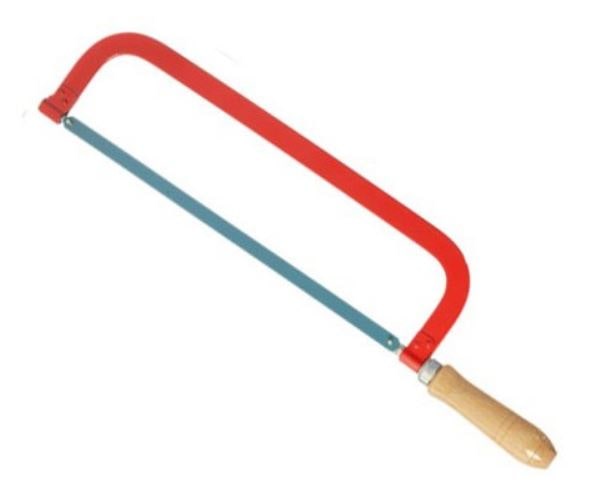
The hacksaw is one of the best and common saw types, that are used when you need to cut metal or plastics with precision. The frame of the hack saw is C-shaped where the material-specific cutting blades attached themselves.
The tooth of this blade ranging from 18-32 teeth per inch, that it helps to cut through plastics with comfort.
#11 Pruning Saw
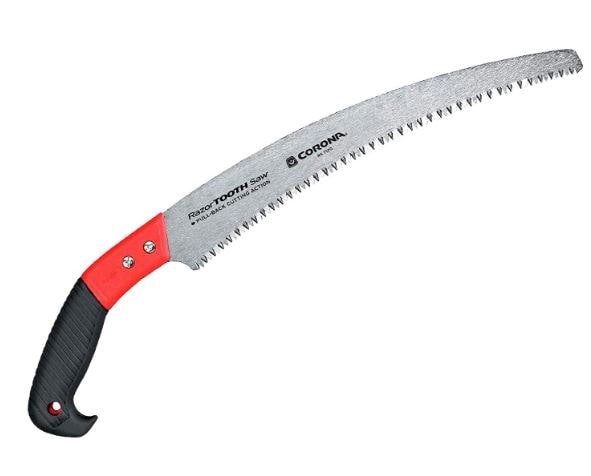
Pruning saws are mainly used to cut tree branches, small plants, and broken branches of trees. It often has 13 to 15 curved blades with “pistol grip” style handles.
The saw is suitable for reaching low branches and dense vines. In a short period of time, the pruning saw can offer you fairly precise cuts. It is mostly used by tree surgeons, lawn services, and landscapers.
#12 Veneer Saw
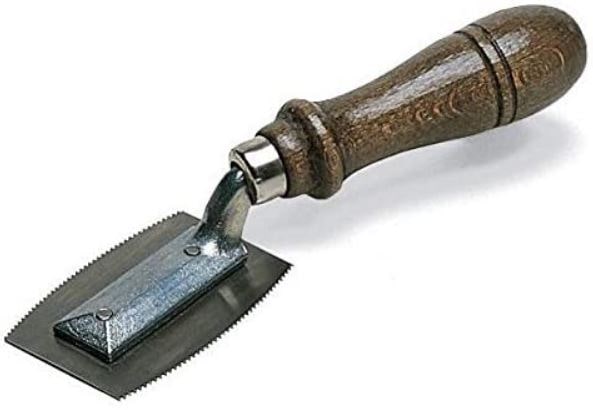
The veneer saw is seen to be made with a short double-edged blade with approximately 13 teeth per inch.
Its double-edged blade is an important benefit to ensure exact and quick cuts at the workplace. If you want to cut the wood of the veneer without damage, then you should see the veneer saw.
#13 Camping Saw
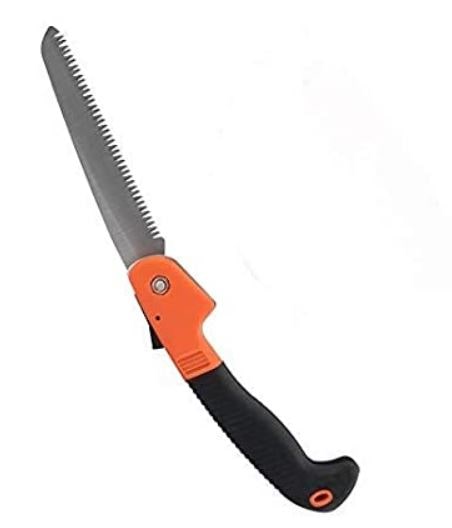
The camping saw is not useful for large trees, but can easily cut small limbs and branches. However, this requires a lot of effort. Thus, the camping saw comes with light in weight and extremely compact size.
#14 Folding Saw
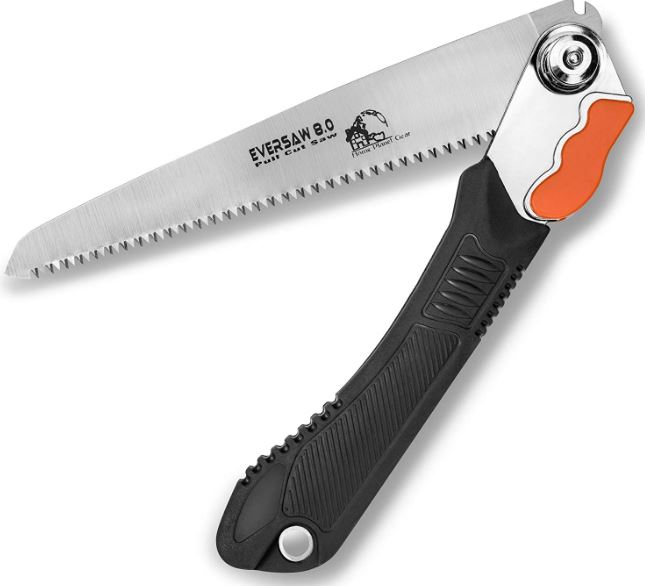
As the name suggests, it is foldable. Even though the folding saw is not as strong as the others, it performs a small task very well.
Therefore, it very useful in camping and trekking. This will allows you to peel with the way to sawing, chopping, and other uses.
#15 Wallboard Saw
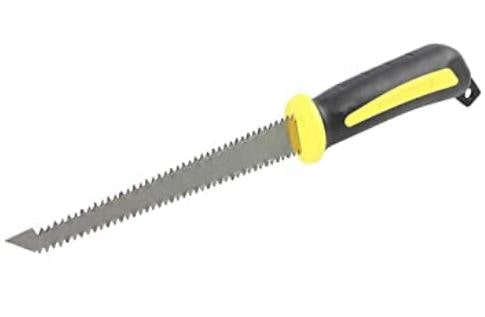
The wallboard saw is likely similar to the keyhole saw. It is small in size with wider blades, and it is a regular handsaw tool. It usually comes in a double-edged type.
The benefit of applying a wallboard saw is, you can use it with both single and double-edged blades. It is made to puncture through paneling or drywall and is also used to make starter holes for powered equipment.
#16 Band Saw (Stationary and Portable)
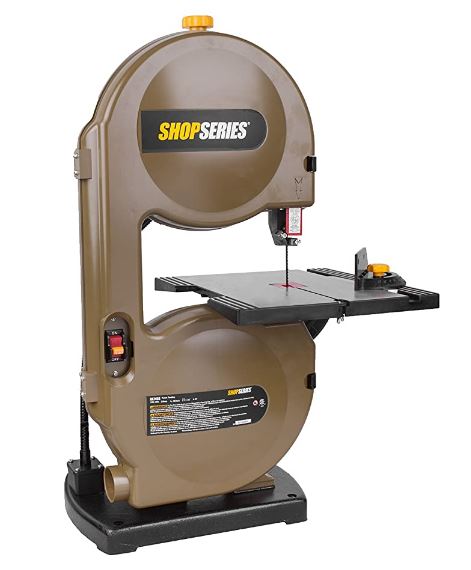
This is a common type of saw that can be found easily in the market. It always assists in moving the attached pulleys and cutting various materials. It is equipped with fine-toothed blades.
The stationary band saws are used for intricate cutting of curves in wood, cutting tubes, piping, and PVC. But, they are confined to a depth of cut and you need to be patient to gain precise cuts.
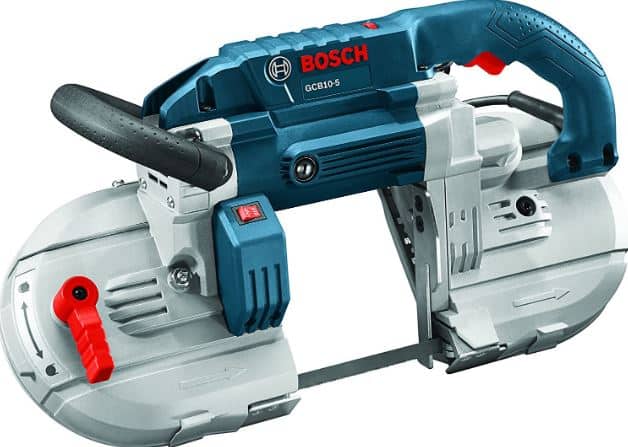
It also comes with a portable type band saw. To make straight edge cuts, cut curved lines, and irregular shapes, it is best for you. It is the smallest and lightest among all band saw types.
These are easy to carry anywhere. And despite their small size, these portable band saws are quite varied.
#17 Table Saw
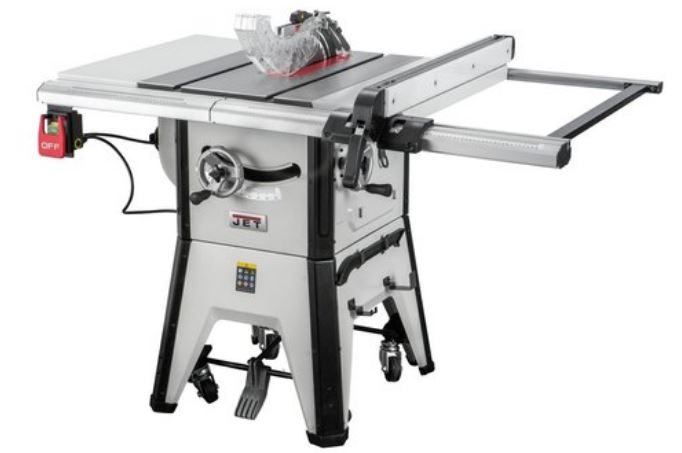
The table saw stands on a large table with rigid legs. It is slightly larger than a circular saw, and it consists of a high-speed motor mounted under a flat table. This robust floor saw allows you to cut large woodblocks easily.
Its blade is designed to make depth and precision cuts. It is are used for cutting several rips or preparing a large number of sized pieces.
#18 Chain Saw
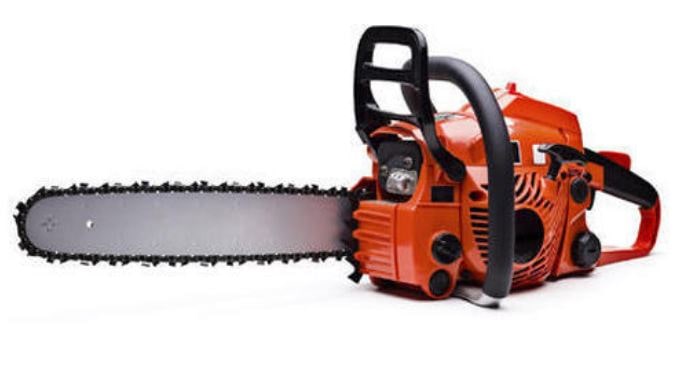
A chainsaw is a type of saw, that handheld with a power tool. As the name itself suggests, It uses a linked chain with some specially designed teeth. They come under the types of band saws.
If you are working on heavy-duty works then a chainsaw is perfect for you. The most common use of a chainsaw is to cut shrubs and trees in forests. And depending on your area it may be necessary for homeowners.
#19 Circular Saw
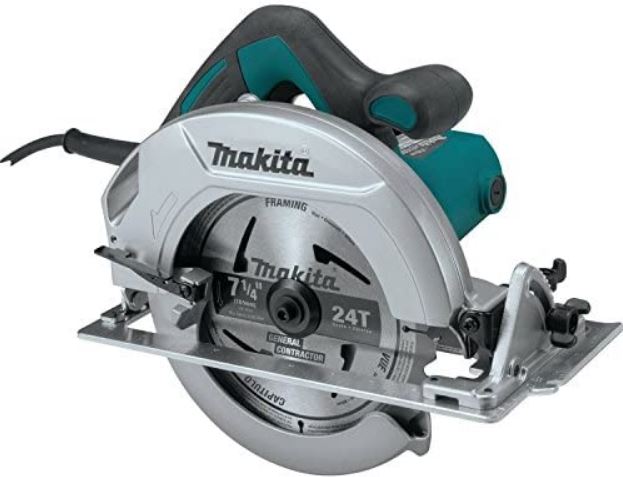
A circular saw is also famous for its name called skill saw. Its teeth consist of a diameter of about 7.25 and 9 inches that can accurately cut through wood, plastic, and metal. These types of saws are easily available in your nearest markets.
In addition, it has the facility of height adjustment. However, you can adjust the height with its lever. It is beneficial for precise depth cutting. It is also used for cutting aluminum sheets.
#20 Tile Saw
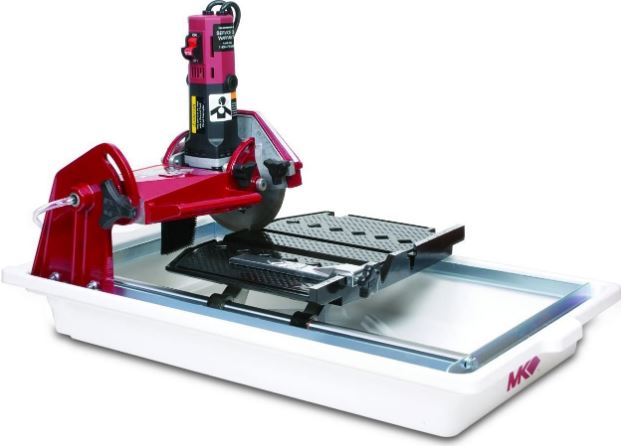
A tile saw consists of a diamond-coated blade and a water-cooling system. This results in very fine and clean cuts without much difficulty. It can cut tiles into different shapes and sizes.
The chainsaw helps to cut tile without damaging the edges. It is used to cut many ceramic or porcelain tiles to desired sizes. These saws are mostly used for the construction of buildings.
#21 Panel Saw
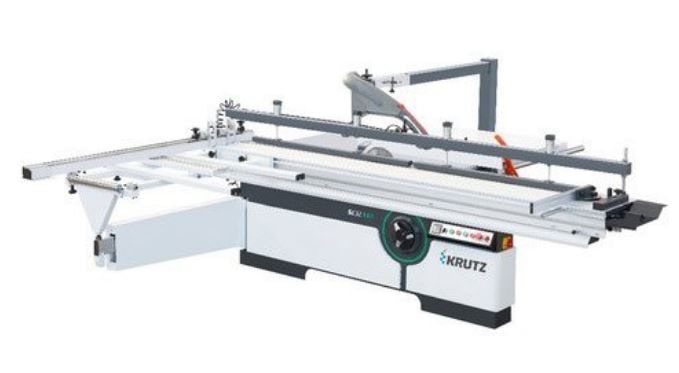
A panel saw is available with vertical or horizontal alignments. Horizontal models use a sliding feed table while vertical models require you to feed material. It has a blade that pushes through the stationary panel.
The panel saw is designed to cut thin logs in different sizes to make a dashboard with them. Panel saws are the most costlier types of saws. The saw is used for the cabinet-making and sign-making industry.
#22 Jig Saw
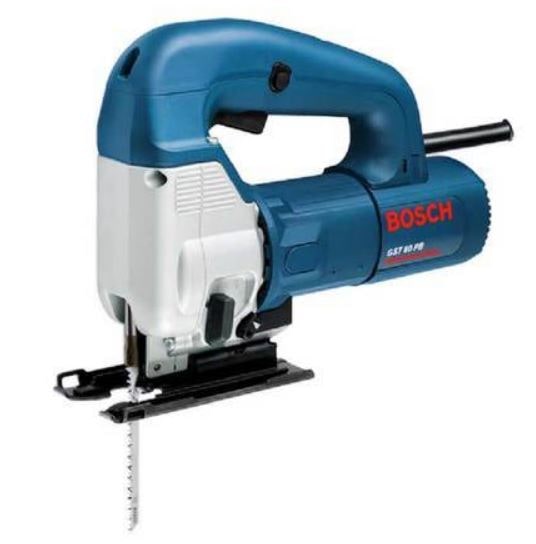
The jigsaw is a small hand saw, that consists of a fine-toothed blade that moves up and down at different speeds. It is the most powerful type of saw that has a robust blade.
It is one of the few saws specifically designed to cut curves and other non-straight lines. This saw is also implying for making plywood cuttings or customized cuts of metal sheets.
#23 Miter Saw
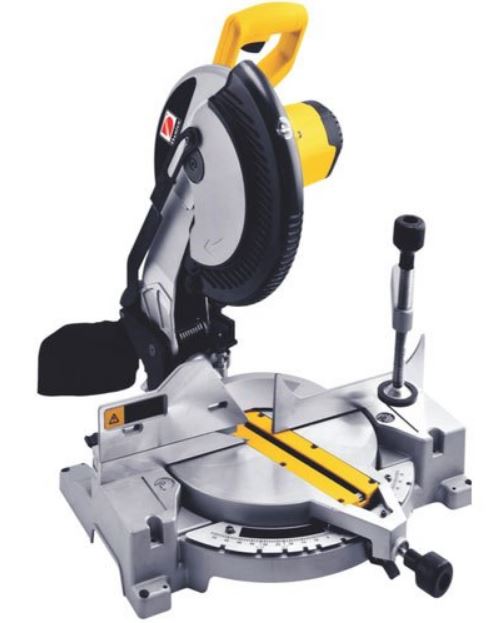
This is an electric saw that you can use for accurate angles and measurements. It is a type of saw, It is used for vertical cuts in the grain and for cutting the thickness of any board.
A miter saw can have a 45° on either side of a straight 90° cut. The blade comes in various shapes and sizes to achieve great accuracy. It is used for cutting long mitered ends.
#24 Oscillating Saw
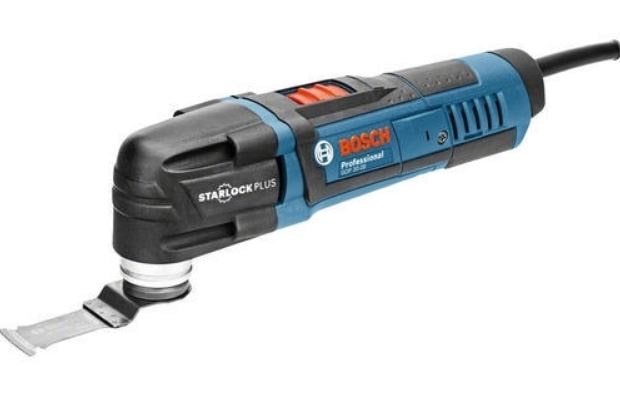
Oscillator saws are wonderful for cutting in confined spaces, with their unique shape and vibrating blade. It has a body shape like a grinder, that capable of doing sawing, sanding, grinding, and cutting different materials.
These types of saws are mostly used by carpenters, artisans, and floor workers for cleaning and sharp cuts purposes. It comes with a variable speed controller that you can run at any speed you want.
#25 Rotary Saw
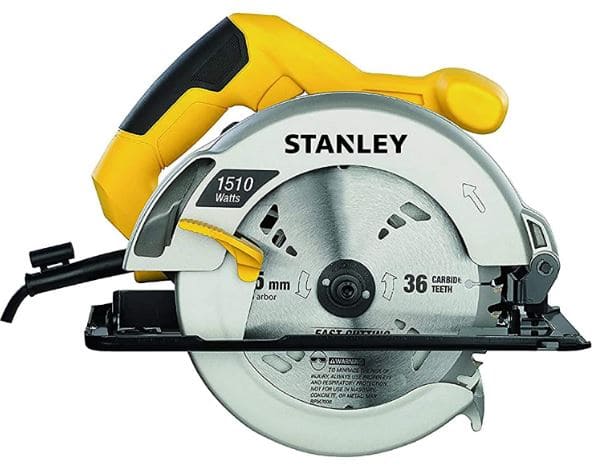
Rotary saws are available to see with a fixed blade and a small screwdriver-type handle. It is almost similar to a keyhole saw, it is best suited for paneling, drywall, and small cuts.
They are utilized for crafts and construction, you can also use these types of saws for repairing and accessing walls easily.
#26 Reciprocating Saw
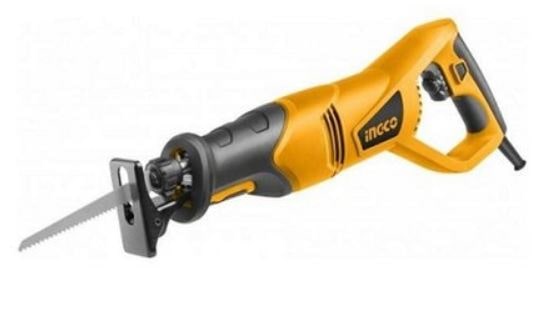
The reciprocating saw is likely similar to the jigsaw, it consists of blades that are moveable quickly in back and forth. If you want to demolish anything, then you should use these types of saws.
Their parallel blades can cut tubes, woods, and plastics, and are also used for cutting under walls or wooden joints with greater accuracy. It is famous for its name called Sawzall.
#27 Radial Arm Saw
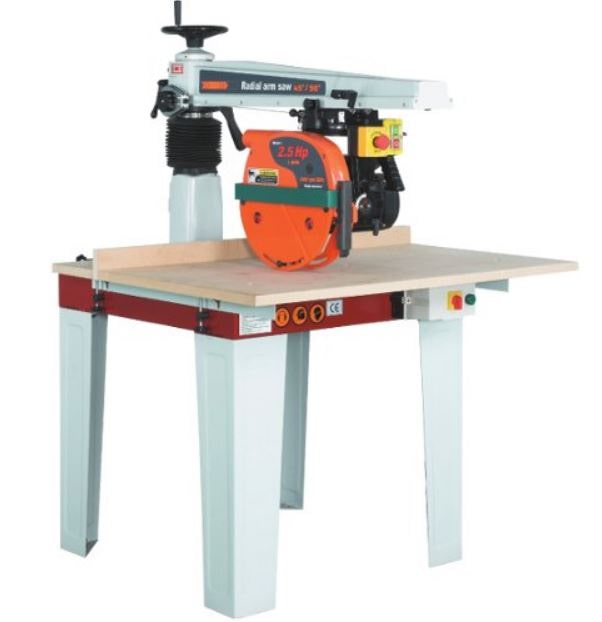
The radial arm types of saws come with an extensive motor and blade. Therefore, it is very useful in compound cuts, miter cuts, bevels, and more. In addition, if you want to interchange its blade with a circular saw, sure you can.
But you need to consider the supported speed of the spin, as some radial saws can turn very fast in speed. It is wonderful for making long cuts and crosscuts.
#28 Pole Saw
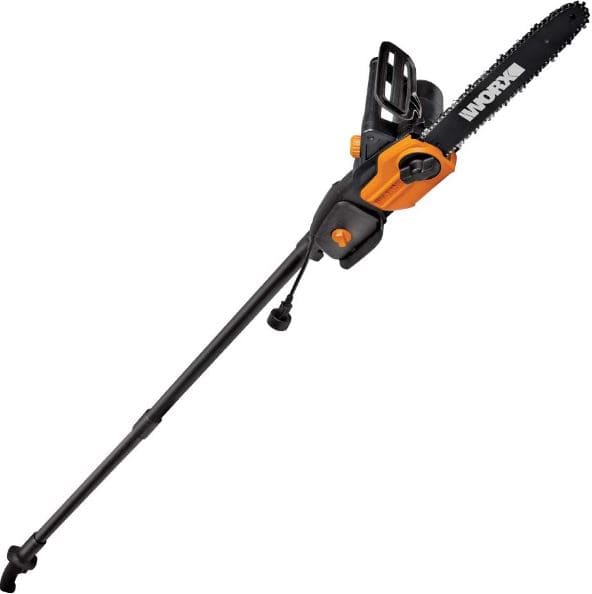
The pole saw is self-explanatory. It comes with power sources like gas, electricity, or battery. But, pole saws are also available to see in manual form.
The saw pole is used for cropping trees, with an attached pruning saw. It is also used for making punctures and holes through panels. Moreover, employes for making starter holes that you can later use for power tools.
#29 Track Saw
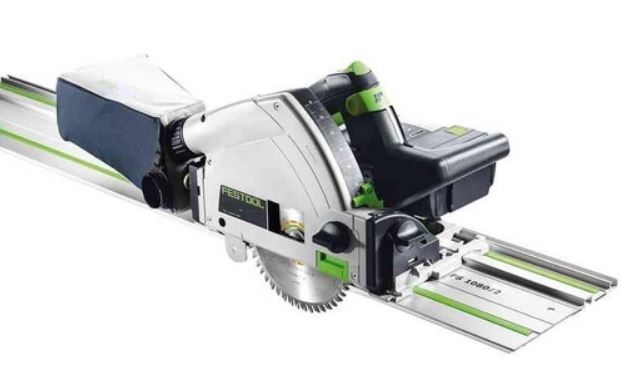
The track saws are types of saws that is used when it comes to simple and precise cuts. This is a modified type of circular saw, designed to perform tasks that cannot be done with a circular saw.
It follows a particular guideline for obtaining fine precise cuts. It will glide easily with a rail making a perfect cut with zero effort.
Conclusion
As you know now, A saw is a tool having a rigid blade, wire, or chain that has a rigid toothed edge. The principal use of saw is for cutting through materials, very often wood, and sometimes metals.
So, we hope that we have clear all your doubts about Saw. If you have still any doubts about the “Types of Saw” you can contact us or ask in the comments.
If you like this article then please share it with your friends. And also you can download the free PDF file of this article by clicking below.
Finally, subscribe to the newsletter to get notifications of our new posts. It’s Free.
You might like to read more in our blog:
- 31 Different Types of Wrenches: And It’s Application With [PDF]
- 30 Types of Pliers: See How To & Where To Use Them? with [PDF]
- 32 Different Types of Hammers: How To Use Them? with [PDF]
Images Credits:
Thanks for these articles, very useful! Much appreciated
I’m glad you liked it. You’re welcome.
It is great to have such information that enrich us. Lets have more details on these topics that will help us to use and get benefits from Saw. Cheers!
Thanks for your feedback.
hello, Thanks For sharing such a Good clue About Saw I’m continually captivated by saws content generally I’m a blogger who clarifies saw
You’re welcome and I’m glad it was helpful.
Hi! your article is really helpful for me. your guidance is really helpful for me.
You are most welcome.